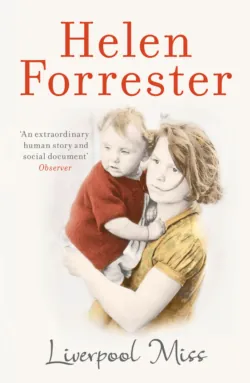Liverpool Miss

Helen Forrester
Тип: электронная книга
Жанр: Биографии и мемуары
Язык: на английском языке
Стоимость: 862.36 ₽
Статус: В продаже
Издательство: HarperCollins
Дата публикации: 16.04.2024
Отзывы: Пока нет Добавить отзыв
О книге: The second volume of Helen Forrester’s powerful, painful and ultimately uplifting four-volume autobiography of her poverty-stricken childhood in Liverpool during the 1930s.The Forrester family are slowly winning their fight for survival. But life remains extremely tough for fourteen-year-old Helen. Along with caring for her younger siblings and suffering terrible hardships she is also battling with her parents to persuade them to allow her to earn her own living. Helen is desperate to lead her own life after the years of neglect and inadequate schooling.Written with an unflinching eye, Helen’s account of her continuing struggles against severe malnutrition and dirt (she has her first bath in four years) and, above all, the selfish demands of her parents, is deeply shocking. But Helen’s fortitude and her ability to find humour in the most harrowing of situations make this make this a story of amazing courage and perseverance.